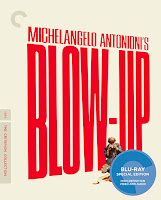 |
| Robert Klein and Fred Willard |
the traveler's resource guide to festivals & films
a FestivalTravelNetwork.com site
part of Insider Media llc.
Film and the Arts
April '17 Digital Week I
- Details
- Parent Category: Film and the Arts
- Category: Reviews
- Published on Wednesday, 05 April 2017 03:36
- Written by Kevin Filipski
Rogue One—A Star Wars Story
(Strand)
(Arrow Academy)
(MHz)
(Acorn)
Film review—Documentary “Robert Klein Still Can’t Stop His Leg”
- Details
- Parent Category: Film and the Arts
- Category: Reviews
- Published on Tuesday, 04 April 2017 03:05
- Written by Kevin Filipski
Austrian Overtures & More at Carnegie Hall
- Details
- Parent Category: Film and the Arts
- Category: Reviews
- Published on Tuesday, 28 March 2017 15:09
- Written by Jack Angstreich

Franz Welser-Möst
On the evening of Friday, February 24th, the first of three extraordinary concerts were given at Carnegie Hall by the superb musicians of the Vienna Philharmonic Orchestra under the masterful direction of Franz Welser-Möst, one of the greatest living conductors.
The program—aptly devoted to Viennese music, which dominated all three concerts—opened with the lovely, uncharacteristically Rossinian Overture to Die Zauberharfe, by Franz Schubert, heard here in a sterling account. This was followed by the American premiere of Time Recycling by contemporary composer, René Starr, which was notable for its accomplished orchestration.
The second half of the evening was devoted to the brilliant tone-poem, Ein Heldenleben by Richard Strauss, magnificently rendered by the musicians. Enthusiastic applause brought forth a delightful encore, the Frühlingsstimmen Waltz of Johann Strauss Jr.
The program on the following evening opened with a dazzling performance of the great Piano Concerto No. 1 of Johannes Brahms, featuring the deservedly celebrated Rudolf Buchbinder as soloist who rewarded the audience's spirited ovation with a marvelous encore, “Soirée de Vienne,” Op. 56, Concert Paraphrase on Waltzes from Die Fledermaus (after Johann Strauss II), of Alfred Grünfeld.
The second half of the concert was just as remarkable, opening with a glorious account of Schubert's exquisite, if ubiquitous, "Unfinished" Symphony in B Minor. This was followed by an equally impressive performance of the excellent The Miraculous Mandarin Suite by Béla Bartók. Another round of excited applause elicited another enjoyable encore, the "Frauenherz" Polka-Mazurka, Op. 166, of Josef Strauss.
The concluding program, presented on the afternoon of the following day, was also superlative, opening with a magisterial version of the Arnold Schoenberg's Verklärte Nacht, one of the masterpieces of late Romanticism, while the second half of the concert enchanted with a wonderful account of Schubert's titanic Symphony No. 9, the "Great." The audience's joyous reception of this performance was reciprocated by one final encore in this thrilling series, the thoroughly pleasurable "For Ever" Polka, Op. 193, of Josef Strauss.
March '17 Digital Week IV
- Details
- Parent Category: Film and the Arts
- Category: Reviews
- Published on Tuesday, 28 March 2017 12:35
- Written by Kevin Filipski
Blu-rays of the Week
Blow-Up
(Criterion)
In 1966, Michelangelo Antonioni went to swinging London to make his first English-language film, a rare instance of the cultural zeitgeist being recorded, aside from its cinematic brilliance as a mystery and investigation into the power and truth of images.
The Criterion Collection gives this historically important filmic time capsule the hi-def release it deserves: there’s a ridiculously good-looking Blu-ray transfer, and extras include archival interviews with Antonioni and actor David Hemmings, featurettes and a new making-of documentary, Blow Up of Blow-Up; and new interviews with actresses Vanessa Redgrave and Jane Birkin.
Cinema Paradiso
(Arrow Academy)
1989’s Oscar-winning Best Foreign Film, Giuseppe Tornatore’s semi-autobiographical reminiscence is perfectly—and honestly—sentimental, its story of a young boy who befriends the local movie projectionist and who leaves his small Sicilian village to become a world-famous director encapsulated in the yearning violin figures of Ennio Morricone’s most romantic score.
The nearly three-hour director’s cut is repetitious but essential for understanding what Tornatore is after: despite its soap opera leanings, resistance is ultimately futile while viewing, especially when the irresistible Brigitte Fossey shows up near the end to steal the film. Fine hi-def transfers of the two-hour released cut and 173-minute director’s cut are included; extras include a Tornatore commentary, A Dream of Sicily documentary and featurettes.
The Creeping Garden
(Arrow Academy)
This odd but compelling documentary by directors Tim Grabham and Jasper Sharp is a straight-faced exploration of strands of mold that multiply on their own, and those scientists and several artists who study and use such creeping masses of matter in their fields.
Needless to say, the interviews and glimpses of the actual molds are fascinating throughout. The film looks fine on Blu; extras include directors’ commentary, Grabham short, featurettes and soundtrack CD.
Fantastic Beasts and Where to Find Them
(Warner Bros)
J.K. Rowling returns with a sort of Harry Potter spinoff based on her book about a British wizard, Newt Scamander, who arrives in 1926 Manhattan with magical creatures in his suitcase only to spend most of the movie trying to recapture them after they escape.
Of course it’s silly and overlong, but there is a sense of tongue-in-cheek fun that permeates the film, especially when the strangely compelling creatures dominate its second hour. The film looks dazzling on Blu; extras are featurettes and deleted scenes.
Patriots Day
(Lionsgate)
This forceful dramatization of the 2013 Boston Marathon bombing and aftermath is another skillful recreation of a real-life tragedy from the suddenly formidable team of star Mark Wahlberg—a convincing everyman—and director Peter Berg, collaborators on the true-life oil-rig thriller Deepwater Horizon who balance the larger canvas with humanizing personal stories.
There’s also marvelous support from John Goodman, Kevin Bacon, Michelle Monaghan, J.K. Simmons and Alex Wolff, who plays the younger Tsarnaev brother with truly frightening intensity. The Blu-ray image is first-rate; extras comprise an hour of interviews and on-set featurettes that give a voice to the real people who were affected by that day and the performers who played them.
DVD of the Week
Just a Sigh
(Icarus/Distrib US)
Jerome Bonnell’s intimate character study of a French actress and a lonely Englishman who meet in Paris while both are in emotional distress has moments of ringing authenticity, but there’s little onscreen resonance despite the flavorful performances by two reliable actors, Emmanuelle Devos and Gabriel Byrne.
The talented pair makes the most of the contrived scenario, providing some laughs, occasional tears and even the odd sighting of a real emotion that go beyond what’s called for in Bonnell’s slight script.
More Articles...
Newsletter Sign Up





















